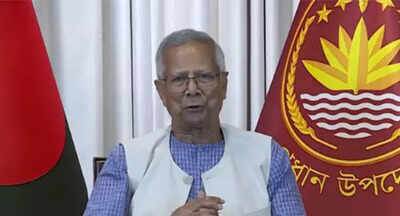A recent study conducted by the International Rescue Committee (IRC) has unveiled a significant surge in child marriages within Bangladesh’s climate-vulnerable coastal areas, primarily in Bhola and Shatkhira. This alarming trend, which has seen a 39% increase in child marriages following climate-induced disasters, has prompted the IRC to urgently call for enhanced and sustainable funding to combat climate change and for immediate collaboration between the government, donors, and non-governmental organizations.
Hasina Rahman, IRC Bangladesh Director, emphasized the urgency of the situation in a report published on December 6, stating, “Every child deserves the right to life, survival, and development. Bangladesh, as one of the world’s most climate-vulnerable countries, faces the challenge of increasing vulnerability among its children due to extreme survival measures being adopted by communities.”
The impacts of climate change on Bangladesh’s coastal communities have been devastating, resulting in forced migrations, extreme poverty, heightened gender-based violence, limited access to education, and food security challenges. The surge in child marriages can be directly attributed to the escalating frequency of climate-related disasters such as flooding and cyclones over the past two decades, the report revealed.
Rahman continued, “Currently, half of girls in Bangladesh are married before their 18th birthday, with 22% being married before they turn 15. This situation is even more dire for girls residing in coastal areas, who grapple with food insecurity, poverty, irregular rainfall patterns, rising temperatures, and an upsurge in the frequency and intensity of natural disasters.”
Rahman further emphasized, “This is a multifaceted crisis that necessitates an immediate focus on improving access to education for girls in climate-vulnerable communities. In the aftermath of disasters, an astonishing 86% of girls face increased household workloads, hindering their ability to concentrate on their studies. Moreover, extreme poverty in the region adversely affects children’s enrolment rates in educational institutions. Inadequate numbers of qualified teachers, poor transportation networks, and the use of schools as shelters during disasters further disrupt educational services. Additionally, the absence of a formal mechanism for reporting abuse and exploitation at service points, particularly during disasters, demands immediate attention.”
The report concludes Rahman making an appeal to the Bangladesh government for establishing a formal reporting mechanism for child abuse and exploitation, along with the creation of child-friendly spaces within communities, provision of psychosocial support, and recreational activities. Sustained and uninterrupted funding is imperative to mitigate the devastating impacts of climate change on children. Without these crucial steps, girls in Bangladesh will continue to be forced into early marriage for generations to come, she argued.
In response to these pressing issues, the IRC is actively assessing the situation and mobilizing resources to safeguard children from the harmful consequences of climate change and climate-induced disasters. The IRC has been actively responding to the Rohingya crisis in Bangladesh since August 2017, officially launching its operations in March 2018. With a dedicated team of over 470 staff members operating in Bangladesh, spread across 30 camps and four host community district sub-divisions in Cox’s Bazar, the organization provides vital healthcare services, including reproductive and maternal healthcare, child protection, education, and prevention and response to Gender-Based Violence. The IRC has also been supporting communities in southern Bangladesh in Health, Protection, Education, and Economic Recovery in response to climate change and climate-induced disasters since 2021, the report claimed.
The IRC is a member of a consortium led by the Norwegian Refugee Council, responsible for implementing a new £2 million program funded by the UK Foreign, Commonwealth and Development Office (FCDO). This program aims to support Rohingya refugees in Bangladesh, encompassing health services, gender-based violence prevention and response within the community, and child protection and case management services, with a particular focus on women and children.
Meanwhile, reports have emerged of two boats carrying approximately 400 people that left Bangladesh several weeks ago and are now stranded in the Andaman Sea. According to the United Nations, the majority of these individuals are believed to be Rohingya refugees from Burma, fleeing dangerous and under-resourced refugee camps in Bangladesh. The captain of one of the boats has reported having about 200 passengers on board, revealing that they have exhausted their food and water supplies and are grappling with a broken engine. The whereabouts of the second boat remain unknown. Since November 2022, nearly 6,000 refugees have embarked on perilous sea journeys from either Bangladesh or Burma, resulting in the tragic loss of almost 500 lives or individuals who have gone missing. (IPA Service)



